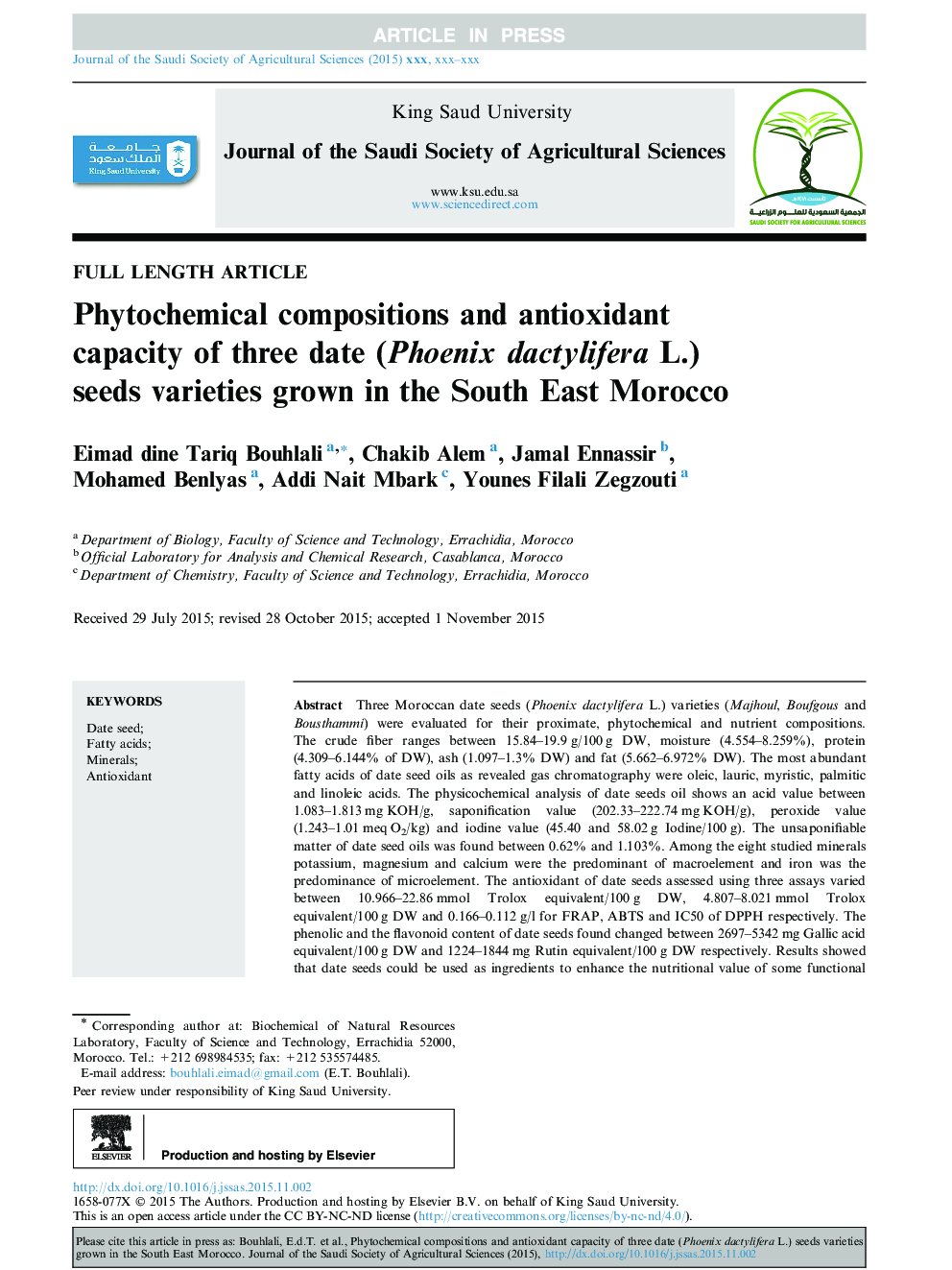| Article ID | Journal | Published Year | Pages | File Type |
|---|---|---|---|---|
| 8876365 | Journal of the Saudi Society of Agricultural Sciences | 2017 | 8 Pages |
Abstract
Three Moroccan date seeds (Phoenix dactylifera L.) varieties (Majhoul, Boufgous and Bousthammi) were evaluated for their proximate, phytochemical and nutrient compositions. The crude fiber ranges between 15.84-19.9 g/100 g DW, moisture (4.554-8.259%), protein (4.309-6.144% of DW), ash (1.097-1.3% DW) and fat (5.662-6.972% DW). The most abundant fatty acids of date seed oils as revealed gas chromatography were oleic, lauric, myristic, palmitic and linoleic acids. The physicochemical analysis of date seeds oil shows an acid value between 1.083-1.813 mg KOH/g, saponification value (202.33-222.74 mg KOH/g), peroxide value (1.243-1.01 meq O2/kg) and iodine value (45.40 and 58.02 g Iodine/100 g). The unsaponifiable matter of date seed oils was found between 0.62% and 1.103%. Among the eight studied minerals potassium, magnesium and calcium were the predominant of macroelement and iron was the predominance of microelement. The antioxidant of date seeds assessed using three assays varied between 10.966-22.86 mmol Trolox equivalent/100 g DW, 4.807-8.021 mmol Trolox equivalent/100 g DW and 0.166-0.112 g/l for FRAP, ABTS and IC50 of DPPH respectively. The phenolic and the flavonoid content of date seeds found changed between 2697-5342 mg Gallic acid equivalent/100 g DW and 1224-1844 mg Rutin equivalent/100 g DW respectively. Results showed that date seeds could be used as ingredients to enhance the nutritional value of some functional foods for human consumption as well as using additives in food, pharmaceutical and cosmetic industries.
Related Topics
Life Sciences
Agricultural and Biological Sciences
Agricultural and Biological Sciences (General)
Authors
Eimad dine Tariq Bouhlali, Chakib Alem, Jamal Ennassir, Mohamed Benlyas, Addi Nait Mbark, Younes Filali Zegzouti,
